Introduction
In the ever-evolving realm of agriculture, the debate between sustainable and conventional practices continues to grab the attention of farmers, consumers, and environmentalists alike. As our global population surges and the demand for food rises, the need to strike a balance between productivity and environmental stewardship becomes more imperative.
This blog’ll examine the key differences, benefits, and challenges of sustainable versus conventional agriculture, shedding light on the path forward for a resilient and healthy future.
Defining the Terms:
Before diving into the nuances, let’s clarify what “sustainable” and “conventional” agriculture means.
Conventional agriculture refers to the predominant farming methods practised since the mid-20th century, characterized by synthetic fertilizers, pesticides, and monoculture cropping systems. These techniques prioritize high yields and streamlined production processes to meet the demands of a growing population and global market.
On the other hand, sustainable agriculture comprises practices that aim to maintain ecological balance, conserve natural resources, and promote biodiversity. It often involves crop rotation, organic farming, agroforestry, and integrated pest management to minimize environmental impact and facilitate long-term resilience.
Key Differences:
- Input Dependency: Conventional agriculture relies heavily on external inputs such as synthetic fertilizers and pesticides to boost crop yields and control pests. In contrast, sustainable agriculture emphasizes reducing input dependency by utilizing natural resources more efficiently and harnessing ecological processes to support crop growth.
- Soil Health: Sustainable agriculture prioritizes soil health as the foundation of productive farming systems. Practices like cover cropping, crop rotation, and organic amendments improve soil structure, fertility, and microbial diversity, enhancing its capacity to sequester carbon and withstand environmental stressors. In conventional agriculture, soil degradation is a prevalent concern due to intensive tillage, chemical inputs, and monoculture practices, leading to erosion, nutrient depletion, and biodiversity loss.
- Biodiversity Conservation: Sustainable agriculture encourages biodiversity conservation by integrating diverse crops, habitats, and wildlife corridors into farming landscapes. This promotes natural pest control, pollination, and soil fertility, reducing the need for synthetic inputs and enhancing ecosystem resilience. Conversely, conventional agriculture simplifies ecosystems through monoculture cropping and chemical applications, contributing to habitat loss, species decline, and destabilization.
- Water Management: Sustainable agriculture emphasizes efficient water management strategies such as rainwater harvesting, drip irrigation, and soil moisture conservation to minimize water usage and mitigate the impacts of drought and water scarcity. In contrast, conventional agriculture may exacerbate water pollution and depletion through excessive irrigation, chemical runoff, and soil erosion, posing risks to aquatic ecosystems and human health.
You may also read: Advanced Farming Techniques
Benefits and Challenges:
Both sustainable and conventional agriculture have their respective benefits and challenges, reflecting the complex trade-offs in food production.
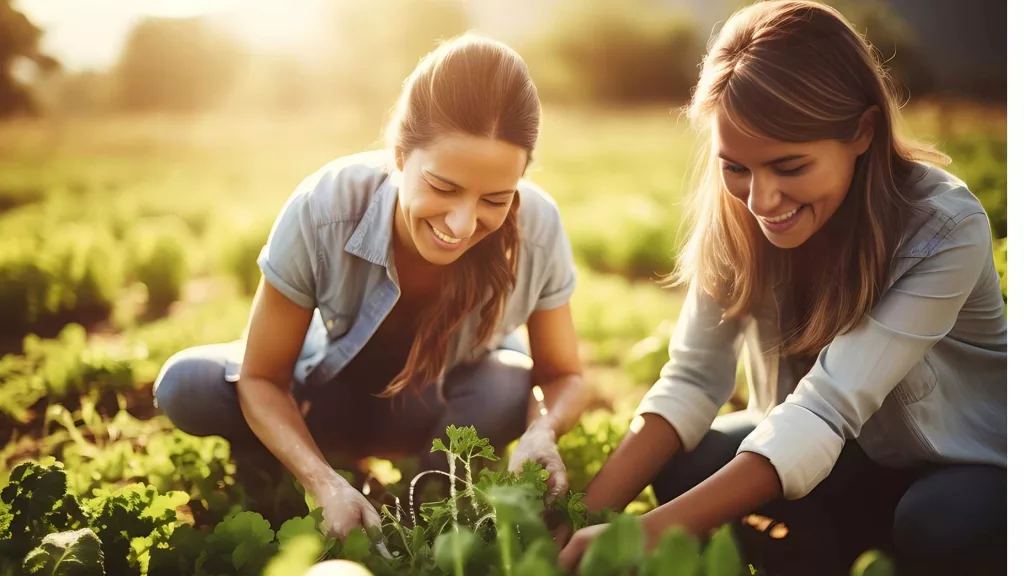
Benefits of Sustainable Agriculture:
– Improved soil health and fertility: Cover cropping and organic amendments enhance soil structure and nutrient availability.
– Reduced environmental impact: Minimizing chemical inputs and promoting natural pest control mitigate pollution and ecosystem degradation.
– Enhanced biodiversity: Integrating diverse crops and habitats supports pollinators, beneficial insects, and soil organisms.
– Resilience to climate change: Agroecological practices build soil carbon, water retention, and adaptive capacity to withstand extreme weather events.
– Long-term viability for farmers: Investing in sustainable practices enhances soil productivity, reduces input costs, and strengthens community resilience.
Challenges of Sustainable Agriculture:
– Transitioning from conventional methods may require upfront investments in infrastructure, education, and support networks.
– Overcoming market barriers and consumer perceptions about sustainability may hinder adoption and profitability.
– Balancing productivity with environmental stewardship demands continuous innovation, research, and adaptive management.
Benefits of Conventional Agriculture:
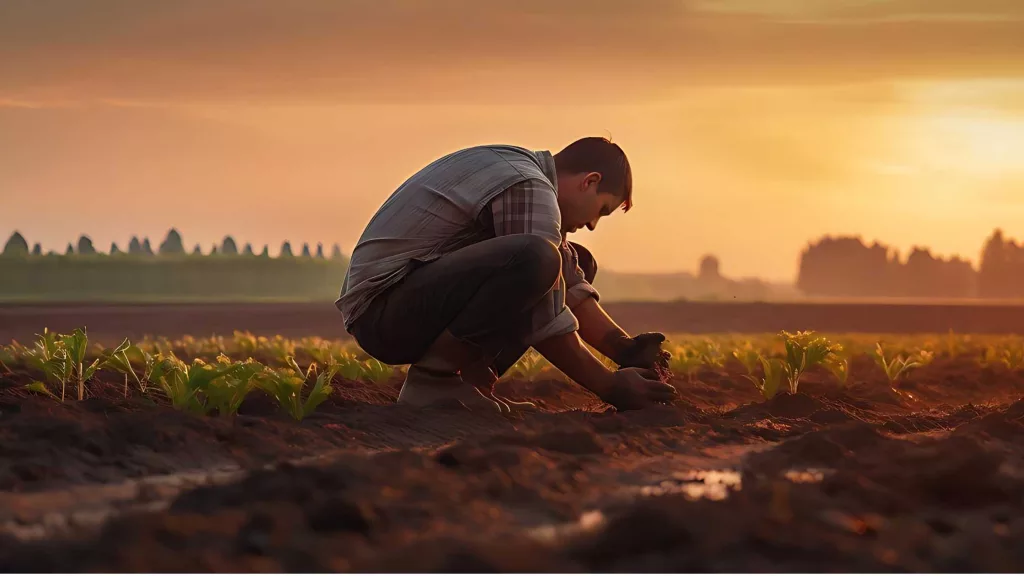
– High yields and consistency: Intensive management practices and technological innovations ensure reliable production outputs.
– Cost-effective inputs and technologies: Synthetic fertilizers and pesticides offer affordable solutions for boosting crop yields and controlling pests.
– Accessibility and affordability: Conventional products are widely available and affordable for consumers due to economies of scale.
– Compatibility with large-scale systems: Mechanization and standardized practices enable efficient production in industrial farming operations.
– Global market integration: Conventional agriculture facilitates international trade, contributing to food security and economic development.
Challenges of Conventional Agriculture:
– Soil degradation: Intensive tillage and chemical inputs contribute to erosion and loss of soil fertility.
– Water pollution and depletion: Runoff from agrochemicals contaminates waterways, while irrigation depletes freshwater resources.
– Fossil fuel dependence: Machinery, transportation, and synthetic inputs rely on finite fossil fuel reserves, contributing to emissions.
– Biodiversity decline: Monoculture cropping systems and chemical applications disrupt ecosystems, threatening wildlife habitats and genetic diversity.
– Vulnerability to pests and climate variability: Simplified landscapes and genetic uniformity increase susceptibility to pests, diseases, and extreme weather events.
The Path Forward:
While both sustainable and conventional agriculture are essential in meeting global food demand, the urgent need for environmental stewardship and resilience calls for a paradigm shift towards more sustainable practices. By integrating agroecological principles, technological innovations, and policy incentives, we can promote a transition towards regenerative farming systems that prioritize the health of people, the planet, and prosperity.
Farmers, consumers, policymakers, and researchers must collaborate to advance sustainable agriculture through education, investment, and policy support. By embracing agroecological principles, diversifying farming landscapes, and valuing local food systems, we can cultivate a more resilient, equitable, and nourishing future for generations.
In conclusion, the dichotomy between sustainable and conventional agriculture underscores the fundamental choices we face in shaping the future of food production. By reimagining agriculture as a holistic and regenerative endeavour, we can cultivate a thriving ecosystem of farmers, communities, and landscapes that sustainably nourish our planet and its inhabitants.
References:
– United Nations Food and Agriculture Organization (FAO)

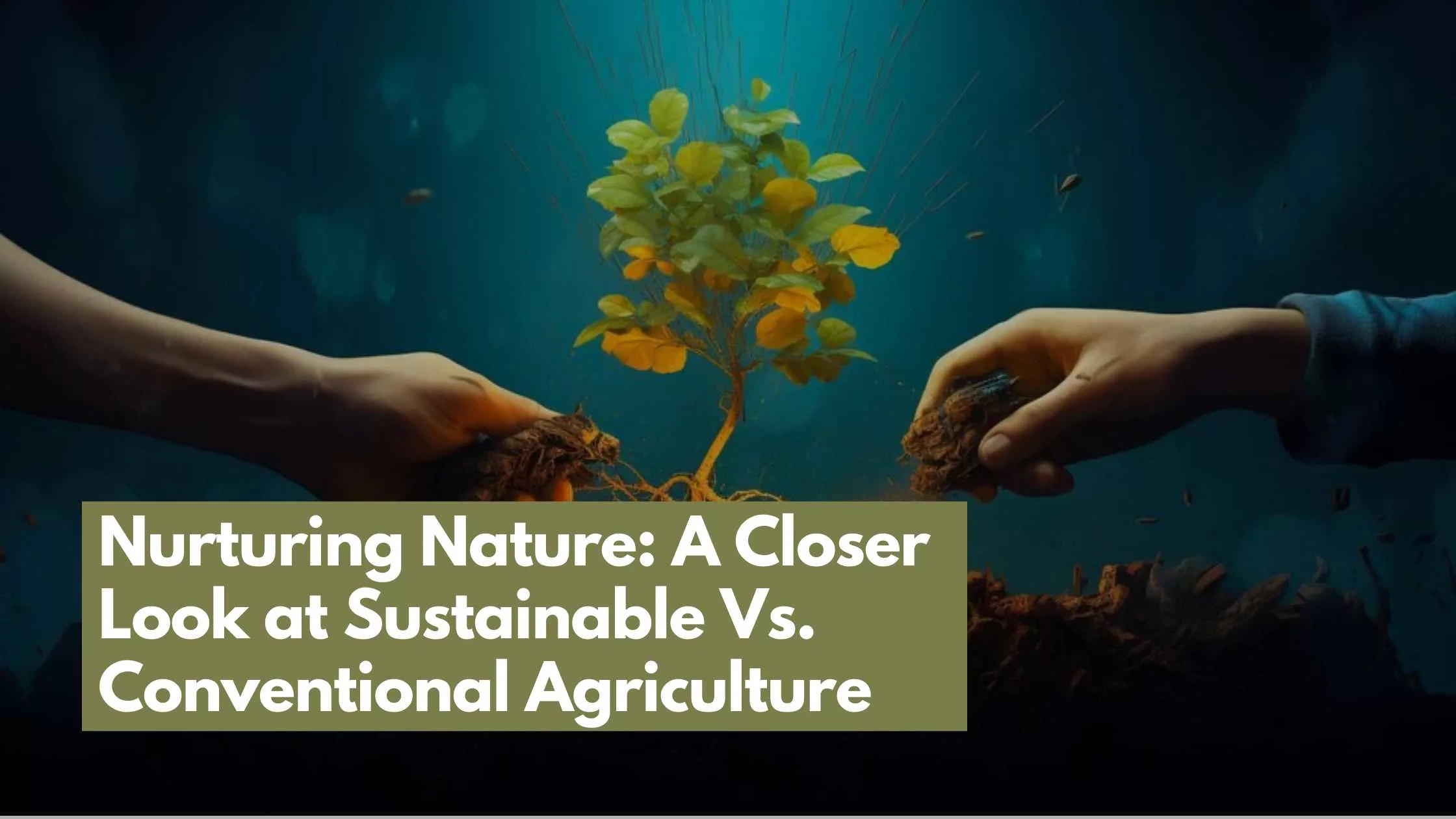
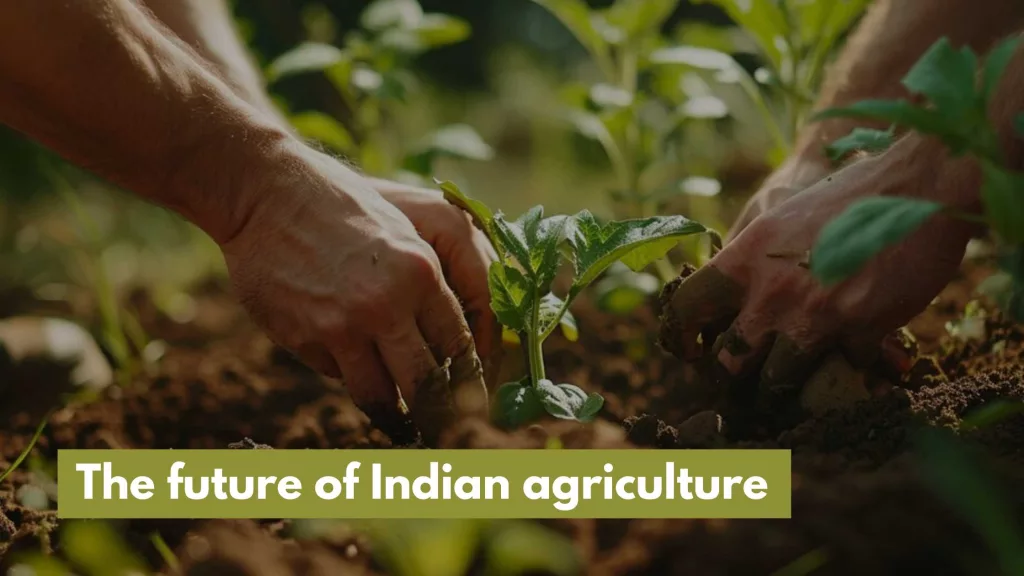
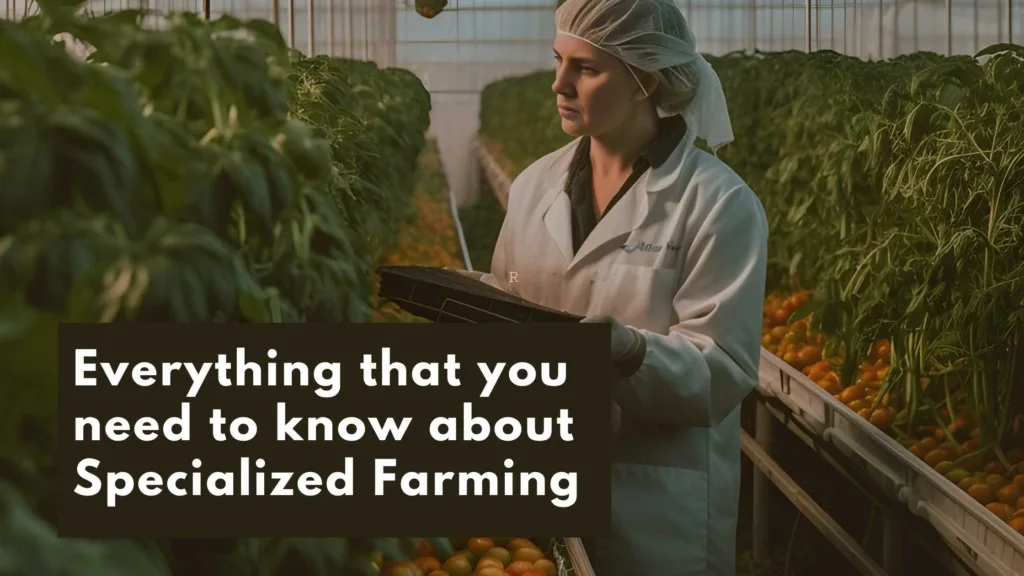
Switching to sustainable agriculture seems like the way forward, but I’m curious about the practicalities.
I completely understand your curiosity about the practicalities of switching to sustainable agriculture. It’s an important consideration, and there are definitely challenges and opportunities involved in making the transition. I hope this post provides some clarity on the practical aspects and offers insights into how sustainable practices can be implemented effectively. Looking forward to exploring this topic further with you!
Nurturing nature through agriculture is key. Can’t wait to explore the nuances between sustainable and conventional methods in this post!
I couldn’t agree more! Nurturing nature should definitely be at the forefront of our agricultural practices. It’s fantastic that you’re eager to delve into the differences between sustainable and conventional methods. I hope this post offers some valuable insights that help shed light on the best ways to cultivate our land while preserving the environment. Can’t wait to hear what you think after reading it!
This sounds like a really interesting read! Sustainable vs. conventional agriculture is such an important topic in today’s world, and I’m excited to learn more about the differences and implications for our environment. Thanks for shedding light on this important issue!
Absolutely! The comparison between sustainable and conventional agriculture is such a crucial aspect of understanding the impact of our food production systems on the environment. It’s great to see more discussions around this topic. I hope the blog post offers some valuable insights into the benefits and challenges of each approach. Looking forward to discussing it further after you’ve had a chance to read it!
Sustainable vs. conventional agriculture is such an important debate. Excited to see what insights this post has to offer!
Absolutely! It’s great to see your enthusiasm for this important debate. Sustainable agriculture is increasingly gaining attention for its potential to address environmental concerns and ensure long-term food security. I hope this post provides valuable insights that contribute to the ongoing discussion. Looking forward to hearing your thoughts after you’ve read it!
I’ve always been curious about the differences between sustainable and conventional agriculture. Can’t wait to dive into this post and learn more!
I’m glad you’re interested in learning more about sustainable and conventional agriculture! It’s such an important topic with implications for our environment and food systems. I hope this post provides you with valuable insights and helps answer some of your questions. Looking forward to discussing the topic further after you’ve had a chance to read it!
Wow, what an eye-opener! This post really delves into the heart of the sustainable vs. conventional agriculture debate. It’s inspiring to see how we can nurture nature while still meeting our agricultural needs.
I’m so glad you found the post insightful! The sustainable vs. conventional agriculture debate is indeed multifaceted, but it’s heartening to see how we can align agricultural practices with nature’s rhythms. It’s all about finding that balance between meeting our needs and preserving the environment for future generations. Thanks for sharing your enthusiasm for nurturing nature—it’s a journey we’re all on together!
Sustainability is the name of the game! Looking forward to exploring the nuances between sustainable and conventional agriculture. Time to rethink how we farm for a greener future.
Absolutely! Couldn’t agree more. It’s refreshing to see more people embracing the importance of sustainability in agriculture. Exploring the nuances between sustainable and conventional practices is key to shaping a greener future for farming. Let’s keep the conversation going and continue rethinking our approach to farming for the benefit of both the environment and future generations. Thanks for sharing your enthusiasm!
What an insightful comparison! It’s refreshing to see a detailed exploration of sustainable versus conventional agriculture. This post provides a great starting point for anyone looking to understand the importance of nurturing nature in our farming practices. Thanks for shedding light on this crucial topic!
Thank you so much for your positive feedback! We’re glad you found the comparison between sustainable and conventional agriculture insightful. It’s essential to highlight the importance of nurturing nature in our farming practices, and we’re thrilled that our post resonated with you. If you have any further questions or topics you’d like us to explore, feel free to let us know. Your support means a lot to us!
The examples of successful sustainable agriculture practices shared in this post are truly inspiring. It’s proof that a better way of farming is possible.
I am thrilled that you found our examples of successful sustainable agriculture practices to be inspiring! These stories serve as tangible proof that better farming is possible and being put into effect, which gives me great hope that real change is already taking place. Please reach out if there are any additional thoughts or if there are specific practices you would like more information about; your enthusiasm is contagious, and I truly appreciate you engaging with my content!
I love how this post empowers readers to make a difference through their food choices. It’s a reminder that every small change we make can have a big impact.
I’m so glad you appreciated the message of empowerment in the post! You’re absolutely right—every small change in our food choices can indeed have a big impact on our planet. It’s empowering to realize that each of us has the ability to make a positive difference through our daily decisions. Your recognition of the importance of individual actions is inspiring, and I’m grateful for your engagement with the content!
This post left me feeling hopeful about the future of agriculture and our planet. It’s encouraging to see that there are alternatives to conventional farming practices.
I’m delighted that my post inspired hope about agriculture and our planet! It’s inspiring that there are viable alternatives to conventional farming practices which may address environmental challenges. Feel free to share any additional thoughts or specific aspects of alternative farming practices you would like explored – your optimism for a more sustainable future is truly heartening, and I thank you for engaging with my content!
I never realized how interconnected our food system is with the health of the planet until reading this post. It’s inspiring to see that sustainable agriculture offers solutions to so many environmental challenges.
It’s wonderful to hear that this post highlighted the relationship between our food system and planet health! Sustainable agriculture offers solutions to numerous environmental issues, and its positive influence can be inspiring. I thank you for engaging with this content!
Thank you for reminding us that sustainability isn’t just about protecting the environment—it’s also about ensuring the livelihoods of farmers and future generations.
Sustainability goes well beyond protecting the environment – it also involves supporting farmers’ livelihoods and creating a prosperous future for future generations. Recognizing these factors as interdependent is crucial for creating a truly sustainable world; I appreciate you recognizing this wider view! Let’s continue advocating holistic sustainability efforts that benefit both people and planet alike!
Thank you for providing such valuable information on sustainable agriculture. This post has motivated me to learn more and take action in my own community.
Thank you so much for taking time to read and respond to this content. It makes my day to know that my post has inspired you to learn more and take action in your community! It is truly rewarding knowing that the information shared has inspired positive change – don’t hesitate to reach out if any additional support or resources are required along this journey – I appreciate all that your commitment means, as well as all your engagement with the content!
I’m impressed by the innovative techniques highlighted in this post for sustainable agriculture. It’s amazing what we can achieve when we prioritize environmental stewardship.
I’m delighted that you found the innovative techniques for sustainable agriculture impressive! It truly amazing what can be accomplished when we prioritize environmental stewardship. By adopting these inventive approaches to more sustainble living, significant progress can be made towards building a more eco-friendly world. If you have any other thoughts or ideas regarding this subject matter please do not hesitate to share! Your enthusiasm for environmental protection is truly admirable, and I thank you for engaging with my post!
Reading this post made me rethink my own consumer choices and how they impact the environment. It’s motivating to see that sustainable agriculture offers solutions.
I’m delighted that the post inspired you to think more critically about the environmental impacts of your consumer choices! Sustainable agriculture offers viable solutions that can positively affect our planet; should any questions arise or if there are specific ways you’d like to incorporate more sustainable practices into your lifestyle, please reach out. Your commitment to making a difference is truly inspiring – I thank you for engaging with this content!
I appreciate the balanced approach in comparing sustainable and conventional agriculture. It really helps to see both sides of the coin.
Thank you for your feedback! I’m glad you appreciated the balanced approach in comparing sustainable and conventional agriculture. It’s important to consider both perspectives to gain a comprehensive understanding of the topic. If you have any further questions or if there are other aspects you’d like to explore, feel free to let me know. Your input is valued, and I’m grateful for your engagement with the content!
This post is a great reminder that sustainable agriculture isn’t just a trend—it’s a necessity for the future of our planet. Let’s keep spreading awareness and making positive changes!
Absolutely, sustainable agriculture is essential to the future of our planet, and I’m thrilled that this post resonated with you in that regard. Let’s continue spreading awareness and advocating for positive changes; together we can make an impactful contribution toward making our world more eco-friendly for future generations! Thank you for being part of such an essential effort!
Thank you for emphasizing the importance of nurturing nature in agriculture. It’s so important to consider the long-term health of our planet in everything we do.
Thank you so much for recognizing the significance of nurturing nature in agriculture! It’s absolutely crucial to prioritize long-term health of our planet in all we do – together, we can make a real impactful difference! Thank you again for understanding the significance of this topic – your support is much appreciated!
I love how this post breaks down the benefits of sustainable agriculture in such an accessible way. It’s inspiring to see the positive impact we can have on the environment through our farming practices.
Thank you so much for taking time out to read about sustainable agriculture’s benefits, I am so thrilled you found them accessible and motivating! It truly amazes me how farming practices can impact positively upon the environment! Your support means so much to me; thank you again for giving your thoughts!
Wow, what an eye-opening post! I never realized the stark differences between sustainable and conventional agriculture until reading this. Thanks for shedding light on such an important topic!
Thank you so much for the encouraging words about the post on sustainable and conventional agriculture! It makes my day to know it was helpful; my aim is always to deliver informative yet eye-opening material, and it seems it did just that for you. Please reach out with any additional inquiries or topics of discussion; your support means so much to me! I truly appreciate it.
I’m all in for the sustainable approach! It’s inspiring to see how we can make a positive impact on the environment through our farming practices.
This blog is a game-changer. Makes you realize the long-term benefits of sustainable farming methods. Definitely worth a read!
Wow, that blog post on sustainable vs. conventional agriculture was a great read! It really highlights the importance of adopting more eco-friendly practices in farming.
Seeing the benefits of conventional agriculture makes me appreciate the methods that have been feeding us for generations.
It’s fascinating to compare the benefits of sustainable and conventional agriculture – both have their perks!
Learning about the benefits of sustainable agriculture reminds me of the importance of taking care of our planet while farming.
Reading about sustainable vs. conventional agriculture is eye-opening – it’s great to see the benefits of both approaches!
It’s interesting to see how conventional agriculture can be beneficial in certain contexts.
Sustainable agriculture is crucial for the future – thanks for highlighting this!
I appreciate how this post balanced the benefits of both types of agriculture.
Conventional farming methods have their place – great read!
The economic benefits of sustainable agriculture are impressive.
This post really opened my eyes to the advantages of sustainable practices.
Conventional agriculture has some strong points – nice to see them covered.
Loved learning about the environmental benefits of sustainable farming.
Sustainable agriculture is definitely the way forward – so many benefits!
This article did a great job explaining the pros of conventional agriculture too.
I never knew there were so many benefits to sustainable agriculture!
Conventional agriculture has its perks, but sustainable farming really stands out.
It’s great to see the benefits of sustainable agriculture highlighted so well.
This post gave such a clear comparison between sustainable and conventional agriculture – loved it!
This blog post is a great guide to the benefits of different agricultural practices.
It’s important to consider both sustainable and conventional methods in farming.
The efficiency of conventional agriculture is well-explained.
Sustainable agriculture promotes long-term soil health and biodiversity.
This post helps in understanding the trade-offs between different farming methods.
Conventional agriculture’s contribution to food security is significant.
The environmental benefits of sustainable agriculture are undeniable.
Conventional methods have helped us achieve remarkable agricultural advancements.
Sustainable practices are essential for the future of farming.
It’s great to see both sides of the agricultural debate covered here.
I appreciate the clear breakdown of the benefits of sustainable farming.
Conventional agriculture’s role in feeding the world is well-presented.
The insights on sustainable agriculture are very informative.
This post is a fantastic resource for comparing agricultural practices.
Conventional agriculture’s efficiency and productivity are impressive.
Sustainable agriculture is crucial for preserving our environment.
Understanding the benefits of both methods helps in making informed decisions.
The focus on sustainability is much needed in today’s agricultural discussions.
Conventional agriculture has its merits, as clearly explained in this post.
Sustainable agriculture has so many long-term benefits – great read!
This post provides a balanced view on different agricultural practices.
It’s enlightening to see the advantages of conventional agriculture highlighted too.
The benefits of sustainable agriculture are well-articulated here.
This blog post offers a great comparison between sustainable and conventional agriculture!